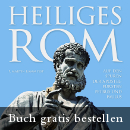zur katholischen Geisteswelt

|
Zum
Inhalts- verzeichnis |
|
Zum
biographischen Bereich |
dient der theologischen Aufklärung
und bietet Ihnen Beiträge zu Themen der katholischen Welt.
Die Beiträge unterliegen in der Regel dem Urheberrecht.
Zum Autorenverzeichnis
Sie befinden sich im englisch- und polnischsprachigen BereichDie neuesten Beiträge finden Sie jeweils auf der Startseite
|
Zum philosophischen Bereich
|
|
Zum
liturgischen Bereich |
Englisch
Abuse
Conscience
Epidemic
Facets of Love
Faithfulness
FSSP
Illusion?
Jesus Christ
Kant: Purpose
Language of L.
Love
Love & Illusion
Love as Source
Mature Christian
Mercy Defiled
Morality
Priest
Rescuing Reason
Walker
Kroatisch
About the founding days of the Priestly Fraternity of St. Peter
By Fr. Engelbert Recktenwald
When I recount the story of the formation of the Priestly Fraternity of St. Peter, it is inevitably in a very subjective manner. I therefore intend from the start to limit myself to my own personal point of view and preface this straightaway with a personal confession: When I think back to the events of that time, I am filled with a single great sensation: that of thankfulness. Thankfulness for the gift of being able to experience God’s guidance, in His inexpressible love and faithfulness; a gift which no power in this world can ever take away from me.
In 1988, when Archbishop Lefebvre consecrated four bishops in defiance of a papal warning, I was a priest in his Society, the Society of St. Pius X (SSPX), working in its apostolate in Stuttgart-Feuerbach, Germany. I had known for a long time that I would never be able to back such a decision, and I had already informed the General Superior, Fr. Franz Schmidberger, of my stance in September 1986. On the other hand, it would have been impossible for me to simply cast off the theological and liturgical formation which I had gratefully received in the SSPX. For this formation bore – apart from some particular constrictions which may have arisen here and there especially in recent times – the stamp of the depth and breadth of Catholic Tradition. The Holy Mass and the liturgy into which I grew in the course of my seminary formation were precisely not the liturgy of the SSPX or of Archbishop Lefebvre, but of the Church and of countless saints who had been formed by it in the course of the centuries, across the historical boundaries of the modern era and the Middle Ages. I was not willing – not even in the case of my leaving the SSPX – to forfeit these treasures. Such a demand appeared to me to be completely implausible. In all of the talks, in which such a demand was made, I was never able to detect behind this demand a love of the liturgy, a concern for the reverent celebration of the liturgy, the belief in the profound mystery of the Holy Mass, but rather very different concerns of a “pastoral” nature, against which the loss of the sense of reverence and mystery appeared to be, in the best case, the lesser of two evils. I was never able to convince myself that conforming to this distorted perspective would be the right thing to do. For this reason, I was entertaining the thought of withdrawing into spiritual isolation to wait for better days in the Church, should the schismatic episcopal consecrations take place. The idea of aiming for the formation of a new society with Rome’s blessing was only brought to my attention one week before the episcopal consecrations, by seminarians in Zaitzkofen, the German-speaking seminary of the SSPX, who called me asking for my help. On the one hand, they did not wish to enter into schism on the 30th of June, the day of the episcopal consecrations, and on the other hand, they wished to seek the priesthood in the same spirit in which they had already begun their seminary studies. Their only chance was to stay united and approach Rome with this cause, as a community. This chance would be much greater, however, if there were also priests involved in the project. I agreed, and began to organize a meeting to take place on July 1st in a town in lower Austria, at the home of a priest friend of mine. Unbeknownst to me, confreres in France were in the process of making similar plans independent of ours.
Under no circumstances did I want to act before June 30th. Admittedly, we priests of the SSPX had been informed on June 13th by Fr. Schmidberger of the failure of Archbishop Lefebvres’s negotiations with Rome, yet I wanted to wait for the episcopal consecrations themselves. I did not wish to place any limitations upon my hopes for a miracle at the last moment, even if this miracle were to consist in the Archbishop’s breaking a leg a half hour before the commencement of the ceremony, thereby foiling the consecrations. But, alas, this miracle did not come to pass, and so, on June 30th at 9:00 am, I took leave of Stuttgart-Feuerbach, of my congregation, friends and acquaintances, of my church home, in order to make my way to lower Austria. Following a considerable detour via St. Pelagiberg, Switzerland, I arrived in the evening. When my car reached Siegmundsherberg, the meeting point we had agreed upon, my trip meter showed exactly 1000 kilometers.
The next day, on the Feast of the Most Precious Blood, our meeting began, and it lasted until July 3rd. In addition to the “host”, four priests and nine seminarians took part. The four priests were: Fr. Josef Bisig, Fr. Patrick du Fay de Choisinet, Fr. Klaus Gorges and I. Following some discussion we agreed to compose a declaration expressing our regret at the illicit episcopal consecrations, welcoming Rome’s generous concessions in the agreement of May 5th , and signaling our decision to remain in communion with Rome and our desire to be established as a society on the basis of this agreement, in order to work in the Church for the Church. The aforementioned agreement, which was signed by both Cardinal Ratzinger and Archbishop Lefebvre, had among other things provided for permission to retain the use of the old liturgy. The Archbishop had then broken off this agreement – to the distress of the moderate wing and to the delight of the radical wing of the SSPX. On the afternoon of July 2nd, the Feast of the Visitation of the Blessed Virgin Mary, our declaration was finished. It was our intention to bring it to Rome within the next couple of days. That evening, we listened to the Vatican Radio news on the radio in my car. We learned that that very day, July 2nd, the Pope had issued a Motu proprio, “Ecclesia Dei”, in which he called on the priests and the faithful associated with Archbishop Lefebvre to remain in communion with Rome, declaring to them that the pledges made in the agreement were still in existence. It was like an answer to our declaration, without any contact having been made. From that point on I firmly believed that things would go on. It was the third day since the consecrations, the Day of Resurrection.
On Sunday, July 3rd, we drove to Vienna for an audience with Archbishop Cardinal Groer. This audience came about in the following manner: Fr. Klaus Gorges was the only one of us priests to have already left the SSPX, about two weeks before. As he lived in Vienna, he had contacted the Cardinal to request an appointment, which had been confirmed for July 3rd. We made use of this opportunity, and, after verifying by telephone that there was no obstacle to extending this audience to include the entire group of those who were assembled in lower Austria, we all made our way to Vienna on Sunday. We were received very cordially that afternoon by the Cardinal, who listened to our concerns and our plans, and encouraged us. When Fr. Bisig mentioned the prophecies of our confreres who remained in the SSPX, namely that Rome only intended to lure us into a trap and then go back on its concessions, the Cardinal assured us of Rome’s sincerity. And if Rome did indeed one day intend to retract, he would remind it of its pledges. He would call Rome that very day and notify Cardinal Ratzinger of our arrival.
We did, in fact, want to go to Rome as soon as possible. Following the audience we celebrated our new beginning with a dinner at a Viennese restaurant and then parted ways. The very same evening, Fr. Bisig, Fr. du Fay and I departed in Fr. Bisig’s car, while I left my car behind in Vienna. We got about as far as Salzburg, where Fr. Bisig, our driver, became so tired that we stopped at the Mondsee roadhouse to spend the night. The next morning, we continued on to Vachendorf. There we met up with Fr. Gabriel Baumann, who had been informed in the meantime and had come from Munich to meet us. After having celebrated the Mass, we made our way to Rome. Some of our French confreres were already there. Fr. Bisig had gotten in contact with them and arranged for us all to meet on Monday evening at the obelisk on St. Peter’s Square. As we had encountered a traffic jam near Florence, we were forced to postpone the meeting until Tuesday morning, July 5th. We arrived a half hour late and could just manage to catch our confreres, who were about to leave St. Peter’s Square after having waited for us in vain. These four French priests were: Fr. Denis Coiffet of the SSPX and three other priests who were not members of the SSPX, but nevertheless advocated the same course: Fr. Tournyol du Clos, who later joined the FSSP, and the brothers de Blignières.
We learned that these priests had already had an audience with Cardinal Ratzinger, in the course of which it became clear that Rome was serious about the Motu proprio. The old negotiations concerning the disputed issues had not been rehashed, but rather the discussion had focused on concrete questions regarding the practical realization of our plan. We were told that Cardinal Ratzinger was expecting us. Fr. Bisig and I went to see him and we were received for a fifteen-minute talk, which confirmed to us the assessment of our confreres.
We stayed in Rome for three days. On Tuesday we had the aforementioned audience with Cardinal Ratzinger, on Wednesday a brief meeting with the Pope and on Thursday a lengthy audience with Augustin Cardinal Mayer, the designated Prefect of the “Ecclesia Dei” Commission, which was at that time still in its planning stages. On all three days we had extensive discussions with the designated Secretary of the Commission, Msgr. Camille Perl, in which we were let in on the mysteries surrounding the process of forming a Society: We were to found the Society and then approach the Holy See requesting it be erected.
No sooner said than done. On Wednesday, July 6th, we founded the Priestly Fraternity of St. Peter in Rome, as a Society of Apostolic Life. The founders were: Fr. Bisig, Fr. du Fay, Fr. Baumann, Fr. Coiffet and I. Later, this act of foundation was renewed on a broader personnel basis, namely on July 18th in Hauterieve, Switzerland.
On the evening of July 7th it was time to take leave of Rome. Fr. Bisig, Fr. du Fay, Fr. Baumann, Fr. Tournyol du Clos and I wanted to celebrate the birth of our new Society before saying farewell. So we headed for a Roman restaurant in Fr. Bisig’s car. The driver was Fr. Baumann. When he caught sight of a restaurant which struck his fancy, his proceeded to drive straight towards it. When Fr. Bisig drew his attention to the fact that we were about to drive across the boundary into a pedestrian zone, Fr. Baumann just responded that this was not such a strict rule in Italy. After having celebrated our newly formed Society in all modesty and moderation, with an Italian meal and red wine, he was proved wrong: Leaving the restaurant, we immediately caught sight of the police in the dusk of nightfall. A car, which had been parked not far from ours, was being towed away. The square in front of the restaurant had only one access road. We had to drive down this road in order to leave, but the road was teeming with police officers in the midst of their work. Upon closer examination of the situation we discovered that there was in fact a second access road across from the one we had seen. It was an alleyway, which was so narrow that a somewhat unfortunately parked compact car was blocking any chance of exiting. So began the deliberations which revealed the character of those involved. The reckless ones among us suggested we together lift the car and move it aside in order to venture a getaway by means of this escape route. If we were only swift and agile enough, the police would be left behind. The reckless ones were: Fr. Tournyol du Clos and Fr. Baumann. The rest of us urged them to prudence, but initially without success. I myself was already envisioning our Society as “St. Peter in Chains.” But Providence thwarted the plan. Just as we had surrounded the car and were about to heave it, someone either looked out of the window or appeared at the other end of the alleyway. We took a little walk in order to wait for the air to clear. But the alleyway was not as lonely and empty as it had first appeared to be. Finally, the mood turned in favor of listening to reason: Better to start out with a fine than to end up in prison. We returned to our car, to drive from the square at a crawl, directly into the arms of the police and surrender to fate. Fr. Baumann started the engine, Fr. Tournyol du Clos began to lead us in praying three “Ave Marias”. We approached the police expecting to be stopped at any moment. Fr. Baumann rolled down the window, the “Ave Maria” was followed by the “De profundis”, the car rolled at a walking pace and – nothing happened! We drove directly past the police without them taking any notice of us at all. As if by a miracle, we were free. From that point on I knew that God was with us.
It was Thursday evening. The return trip was planned to consist of a first leg reaching the accommodation we had used on the way there, in a small village south of Florence, followed by the rest of the trip to Germany on Friday. My car was in Vienna and I wanted to drive it to Stuttgart in order to receive permission from the ordinariate to say the Mass on Sunday in the traditional rite, for those of the faithful in my former congregation who, like myself, were not willing to go along with the SSPX. Time was of the essence! Spending a night in Italy would have meant an unjustifiable loss of time. And so I pleaded with my confreres to take me to the train station in Montevarchi, where I intended to take the train alone to Vienna. I hoped to arrive in Vienna the following morning. We arrived at the train station at ten o’clock in the evening. Fr. Bisig was the first to apprehend the situation by glancing at the departures board: In two minutes the last northbound train towards Florence would be leaving. I went to the counter to purchase my ticket and one could already hear the train approaching. As I was boarding, Fr. Baumann lunged back to the car, grabbed my luggage and managed to throw it in after me just in time. The train began to move, I had a funny feeling and asked one of the passengers where the train was headed. The answer was devastating: Rome! I pondered feverishly what I could now do in order to reach Vienna and Stuttgart in time. Suddenly, after about 100 meters, the train stopped. I was just thinking, I could actually get off now, when the conductor came towards me and asked me to get off. What had happened? Fr. Baumann had managed to convince the railway clerk to give the signal to halt. Such things are only possible in Italy… I got off and walked under the questioning stares of the passengers at the windows of the train, through the quiet night and the scrunching of the railway gravel back to the station, just as the correct train was arriving. I sat down in relief in a compartment which I shared with another passenger who spoke to me without ceasing in Italian, without my understanding a word. To this day I have no idea what he wanted to tell me, although he made an effort for three quarters of an hour. Then we arrived in Florence. At the huge train station only two of the many counters were still open, with an equally long line of people waiting at each. I decided on one of the two and finally reached the counter after a half-hour wait in line, only to find out that the international counter was around the corner. There things moved a little faster. I got my ticket to Vienna without receiving any further information. The only thing I found out was the departure time: Sometime between two and three o’clock in the morning. I wanted to make use of the time in order to take a look at Florence, but as I was leaving the train station, the “informazioni” caught my eye. Here I saw timetables which revealed that my train would not arrive in Vienna until Friday evening. This would spell disaster for my plans! The best alternative I could find was a train to Munich. Arrival at 10:00 am, departure at midnight. I glanced at the clock: It was 11:45 pm. I returned immediately to the counter, got a ticket without further ado, as well as money back, much to the surprise of those waiting in line behind me, and proceeded to platform 12, where the train bound for Munich stood waiting. I quick inquiry of the engineer, who was looking out of the window, removed the final shadow of a doubt that this was indeed the correct train. I unhurriedly took a seat in a compartment empty of passengers and waited until midnight. But nothing moved. Then a minute passed, then two minutes, five minutes, and thirty more minutes, but nothing happened! Finally, I went in search of someone and found a conductor sleeping peacefully in a baggage car. After several attempts at communication in various languages, I finally learned that there had been a power outage between Florence and Bologna. Departure time, as well as arrival time in Munich, were completely uncertain… My fatigue aided my patience, but nevertheless I was unable to sleep a wink the entire night. After more than two hours we finally started moving. At five o’clock in the morning three Italian women got aboard and joined me, putting an end to my solitude. The first thing they did was to ask me quite unexpectedly: What do you think of Archbishop Lefebvre? I explained in English as well as I could more or less the same thing as I have written in this article….
I arrived in Munich at 1:00 pm. There I sought out the priory of the FSSP to freshen up. The Superior, Fr. Baumann, was absent at the time. The second-in-command was Fr. Albert Lehnen, an old friend of mine, who had actually shared my disapproval of the episcopal consecrations. Assuming that he was in the know, I told him, beaming with joy, about how well things had gone in Rome, but he was flabbergasted. He had not been aware of our trip to Rome and he was also not willing to leave the SSPX. He did not want to abandon the Archbishop at his most difficult hour. That was the beginning of my painful experience, that many of my former friends and confreres who had originally been against the consecrations still stayed in the SSPX, often for personal and actually quite honorable reasons, while we were seen as the “traitors”… And so the number of members of the Priestly Fraternity of St. Peter ended up being far fewer than I had originally reckoned with. There were always just enough to shoulder the upcoming tasks: the opening of the Seminary in October etc.
As for how things went on, this can be left to an uncertain sequel to this article. I would like to put only one thing on the record: I have never regretted for a moment my decision to remain in communion with Rome. Despite all the difficulties and disappointments which my confreres and I have had to experience – particularly within the Church – the experience of God’s faithful guidance has prevailed by far. There were so many small acts of Providence, in which God’s hand was revealed, that the “hot year” of 1988 turned out to be one of the most important years of my life. Praise be to God forever!
Polnisch
Dobro i złoFatamorgana
Miłość
Miłość Boża
Moralność
Tolerancji
Portugiesisch
Amor como chave
Amor como fonte
Facetas do Amor
Ilusão?





